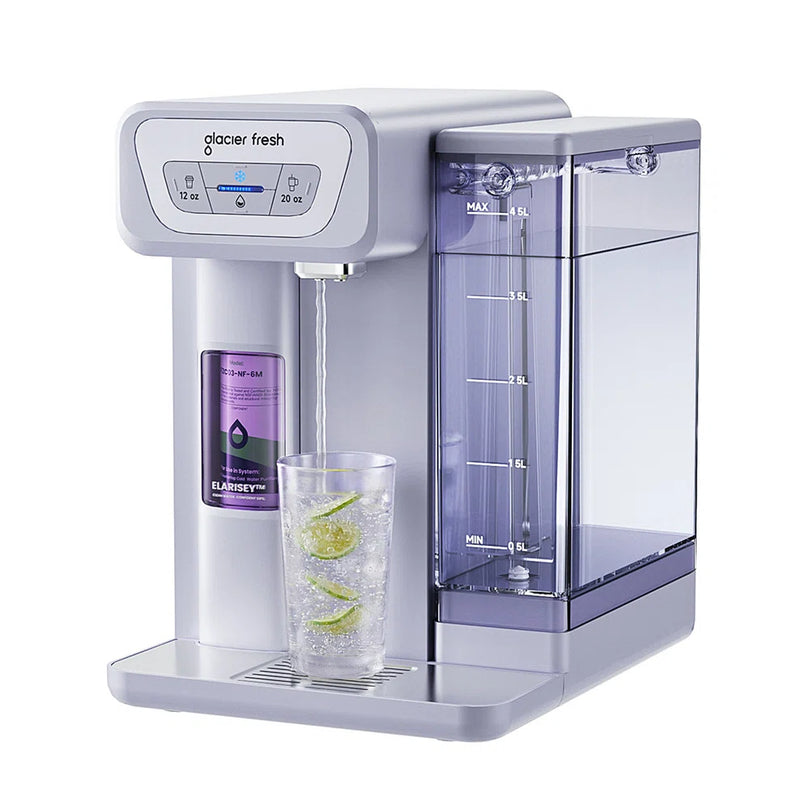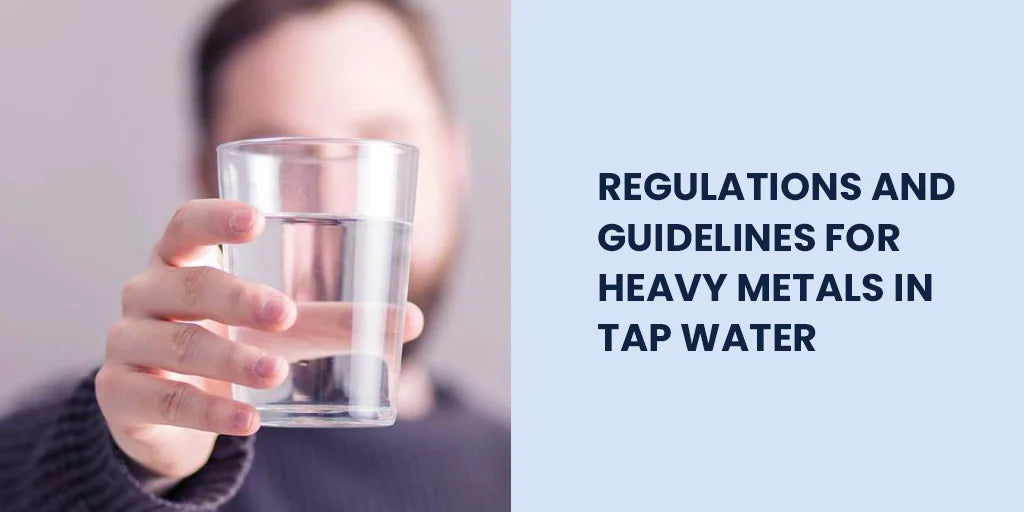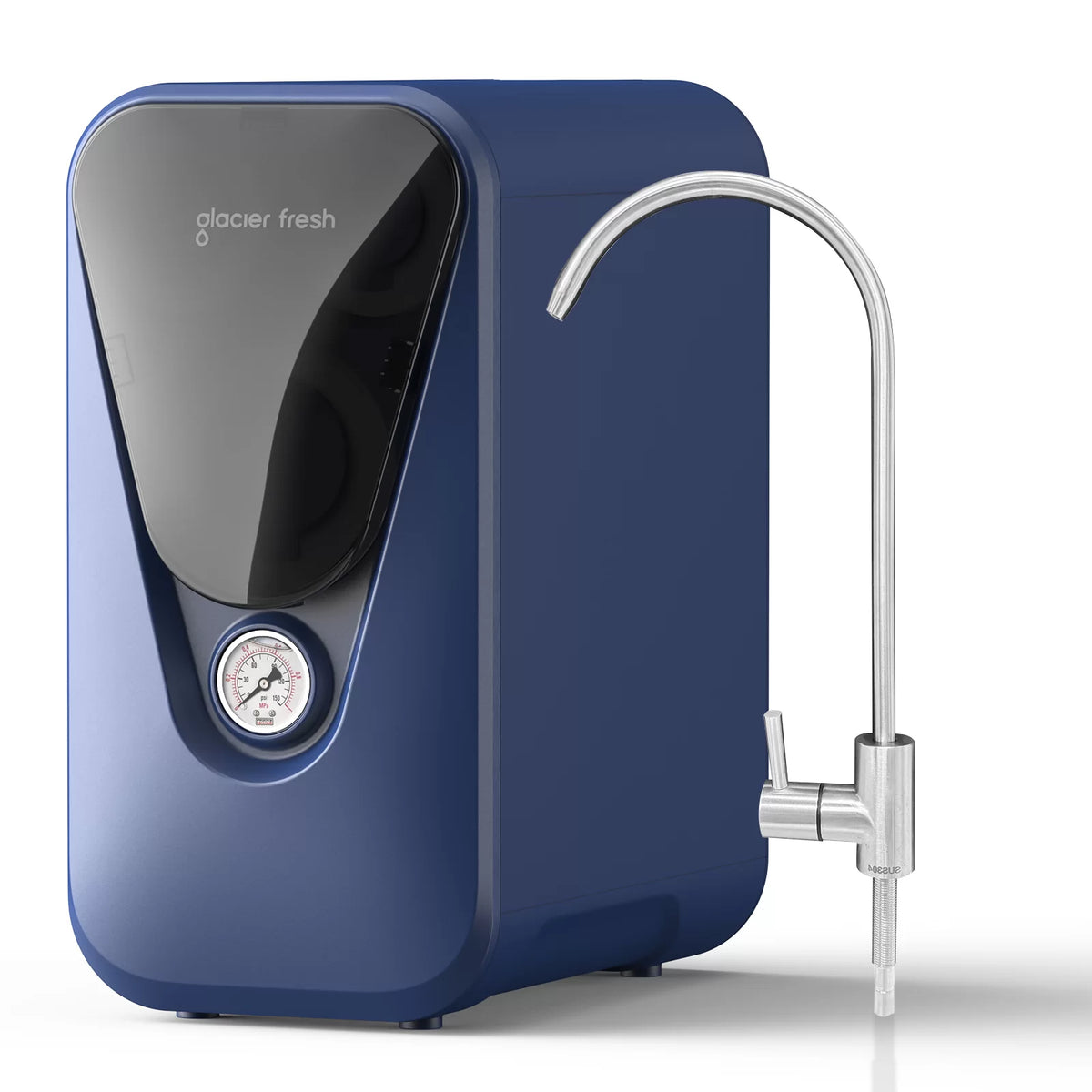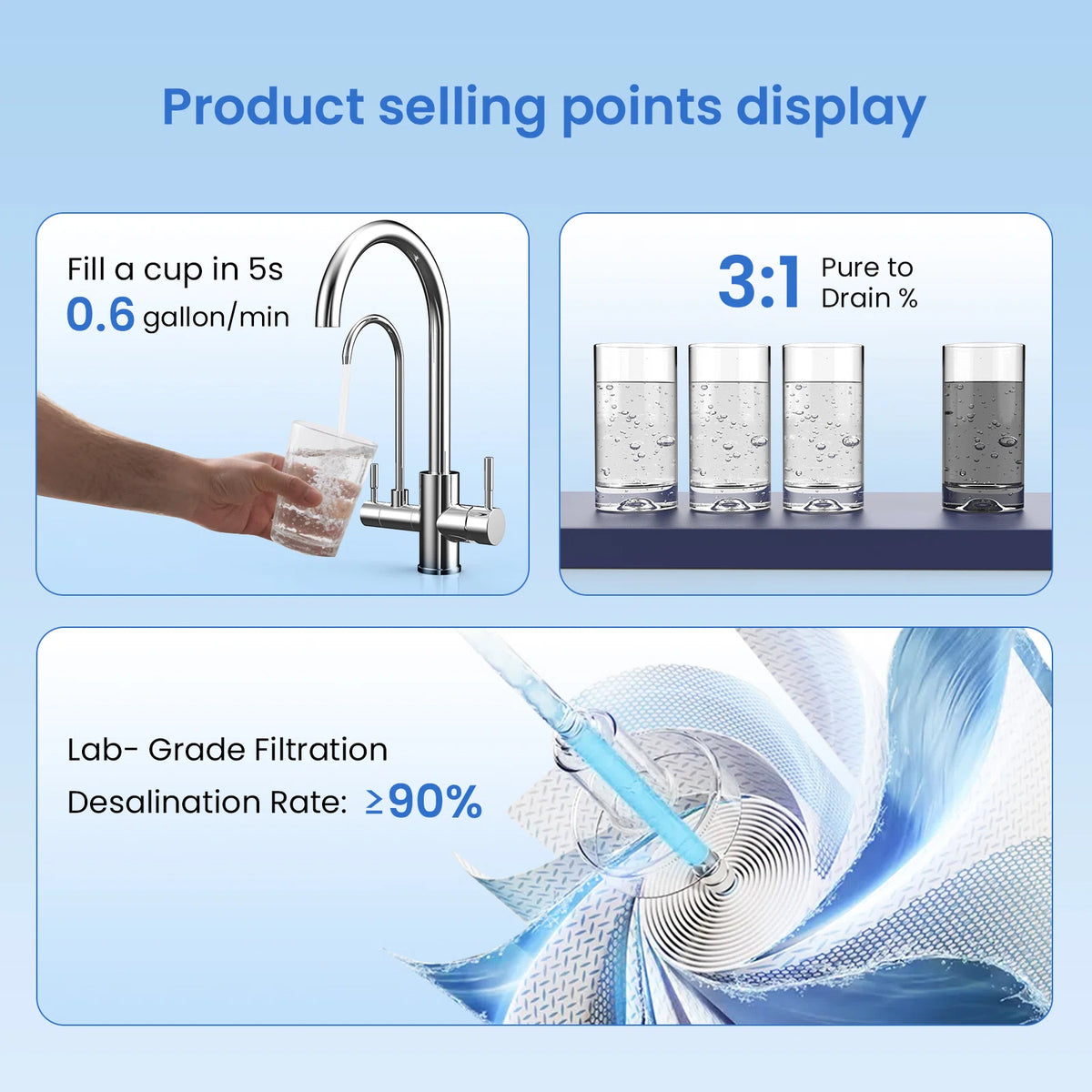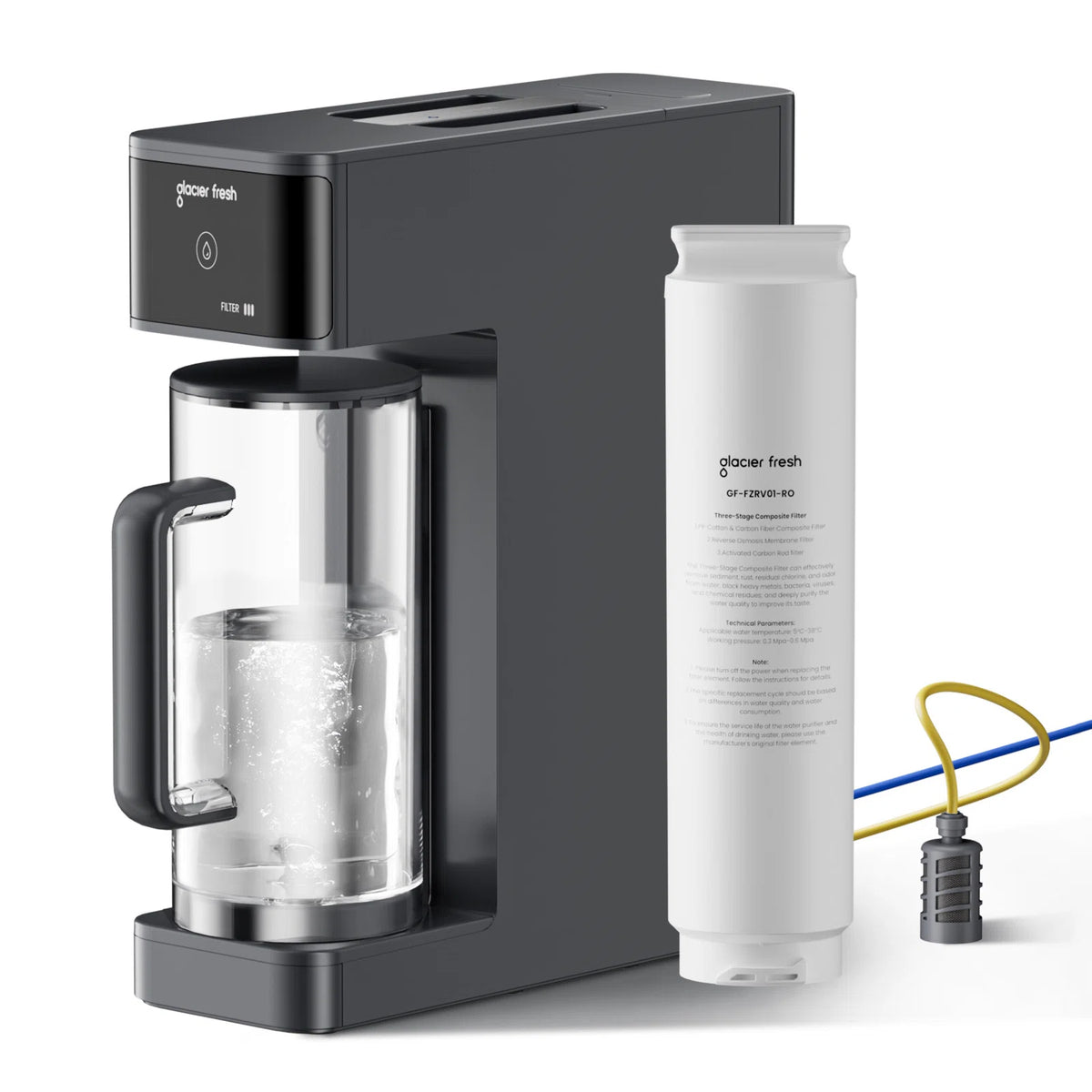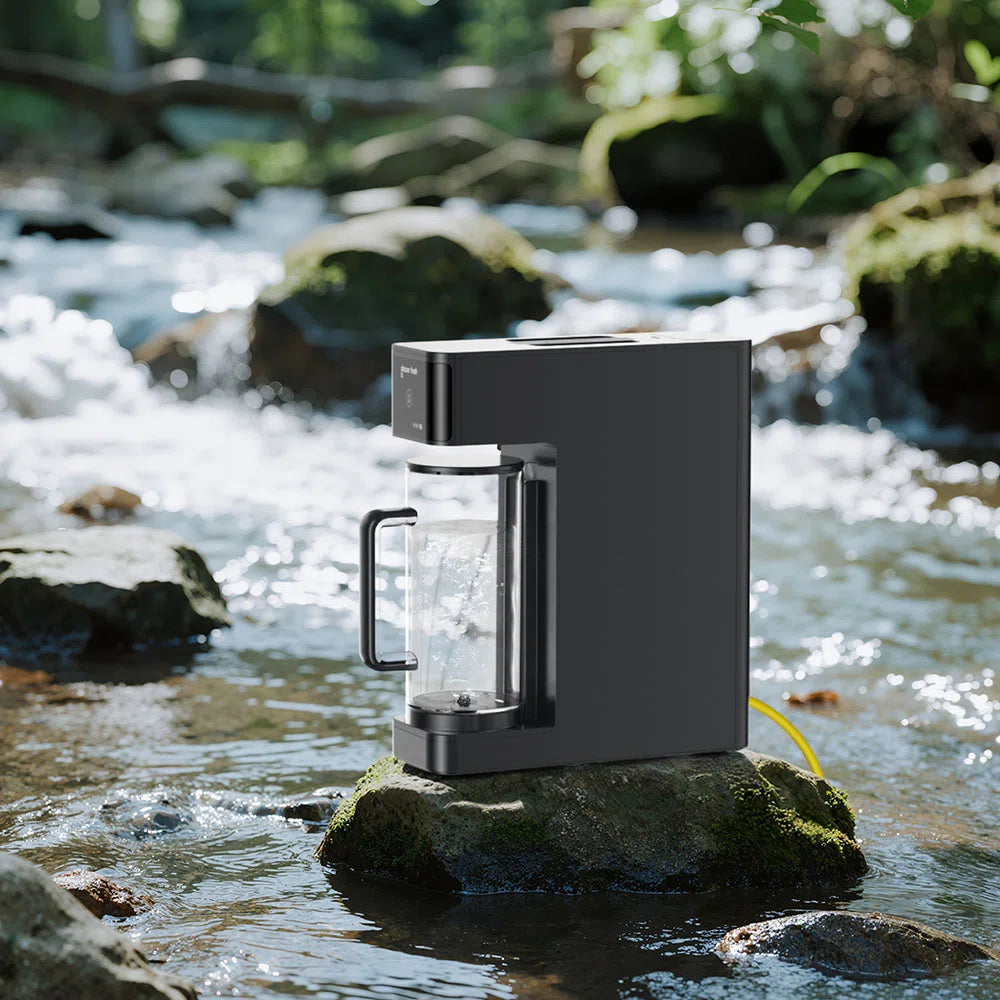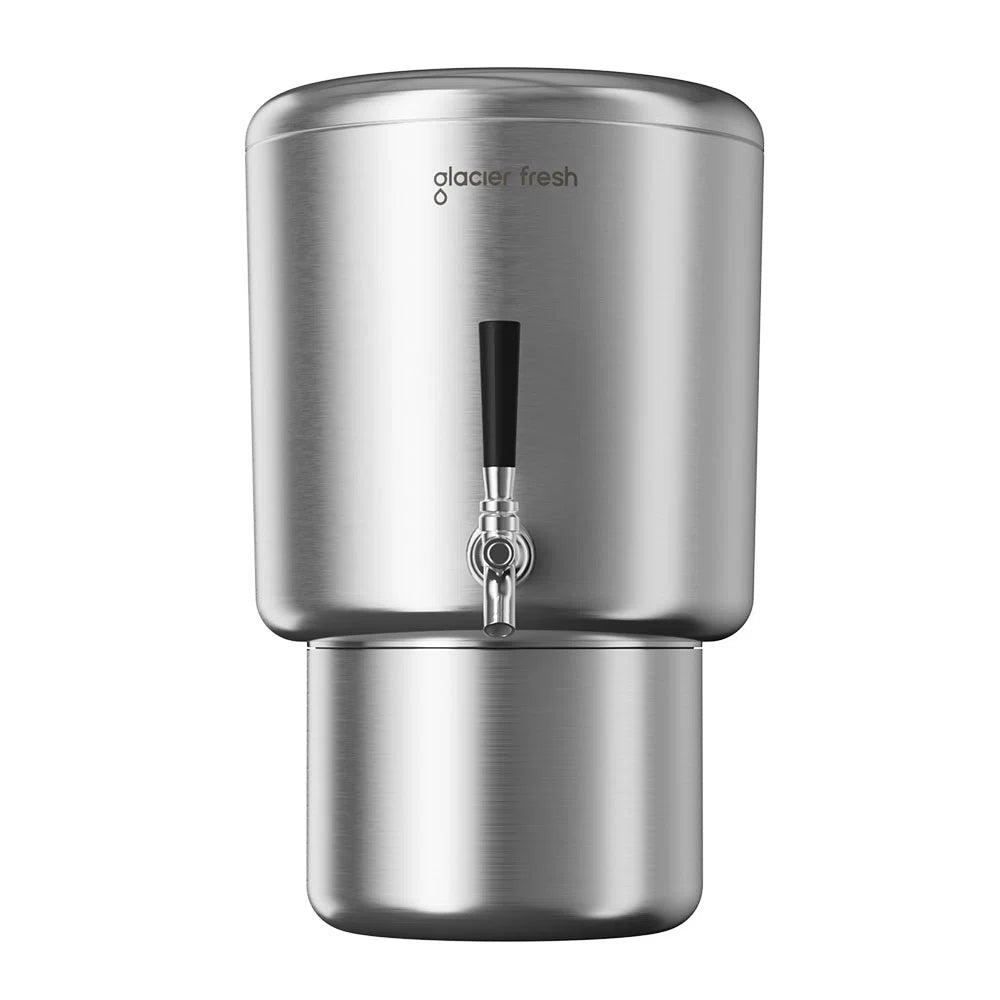Table of Contents:
What are heavy metals?
The sources of heavy metals in tap water
The health risks of heavy metals in tap water
Regulations and guidelines for heavy metals in tap water
Glacier Fresh solutions for addressing heavy metals in tap water
FAQs
Conclusion
If you care about your health, heavy metals in tap water should concern you. Glacier Fresh filters effectively address this issue by removing harmful contaminants like lead, mercury, and arsenic. With our advanced filtration technology, you can ensure clean drinking water and reduce environmental impact—Trust Glacier Fresh for safe water and peace of mind. Discover more about how we combat heavy metals for your well-being.
What are heavy metals?

Heavy metals are elements known for their high density and potential toxicity in water sources. Heavy metal toxicity occurs when lead, mercury, and arsenic accumulate in the environment due to various human activities, such as industrial processes and agricultural runoff. Environmental exposure to heavy metals can lead to severe health effects, including neurological damage, organ failure, and even certain types of cancer.
The sources of heavy metals in tap water

Heavy metal sources can originate from natural sources like rocks and soil or human activities such as industrial processes, mining, and agricultural runoff. These contaminants get into tap water through various means, including leaching from underground storage tanks, corrosion of pipes and plumbing fixtures, and surface water runoff into reservoirs. Tap water contamination with heavy metals poses significant health implications, as long-term exposure can lead to serious health issues like neurological damage, organ failure, and even certain types of cancer.
To address this concern, water filtration systems play a crucial role in removing heavy metals from tap water. Glacier Fresh solutions offer advanced filtration technologies that effectively eliminate heavy metals, ensuring that you have access to clean and safe drinking water.
The health risks of heavy metals in tap water
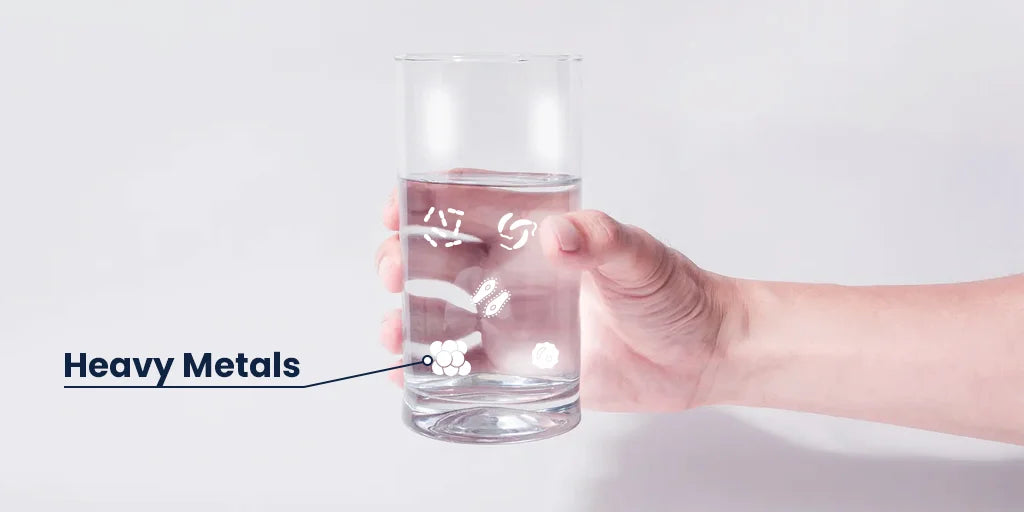
To fully grasp the severity of heavy metal contamination in tap water, understanding the potential health risks associated with these pollutants is paramount. Heavy metals in tap water pose significant health implications, including long-term effects on the nervous system, kidneys, and liver. Chronic exposure to these contaminants has been linked to an increased risk of certain cancers and developmental issues in children. Water contamination by heavy metals can also lead to cardiovascular problems and other severe health conditions.
Treatment options for heavy metal removal from tap water include filtration systems, reverse osmosis system, and ion exchange. However, public awareness regarding the risks of heavy metals in tap water is essential. Educating individuals about the dangers and providing information on prevention measures can help reduce exposure. Simple steps such as certified filters and regular water quality testing can go a long way in safeguarding against the health risks of heavy metal contamination in tap water.
Regulations and guidelines for heavy metals in tap water
Role of the Environmental Protection Agency
The Environmental Protection Agency establishes regulations and guidelines to control the levels of heavy metals in tap water, ensuring safe consumption for the public. The environmental impact of heavy metals on water quality is monitored through EPA regulations, with strict government oversight in place.
The EPA mandates contaminant testing to assess the presence of heavy metals like lead, arsenic, and mercury in tap water. This proactive approach helps maintain water quality standards and protects public health. By setting these guidelines, the EPA plays a crucial role in safeguarding the drinking water supply from harmful contaminants and promoting a healthier environment for all.
Maximum contaminant levels(MCLs) for heavy metals in tap water
In ensuring the safety of tap water, understanding the maximum contaminant levels (MCLs) for heavy metals is vital to maintaining water quality standards and protecting public health. Heavy metal exposure through drinking water can harm public health, emphasizing the importance of strict contaminant-level regulations. Below is a table outlining the maximum contaminant levels set for various heavy metals in tap water:

Adhering to these MCLs is crucial for safeguarding water quality, minimizing heavy metal exposure, and ensuring overall public health and drinking water safety.
Standards and guidelines set by the World Health Organization(WHO)
Understanding the standards and guidelines established by the World Health Organization (WHO) regarding heavy metals in tap water is crucial for ensuring water safety and public health.
The WHO sets specific limits known as maximum contaminant levels (MCLs) for heavy metals like lead, arsenic, and mercury to safeguard water quality. These standards are designed to protect against metal toxicity and the associated health effects that can arise from exposure to contaminated water.
By adhering to WHO standards, authorities can monitor contamination levels, take necessary actions to mitigate risks, and ultimately safeguard consumers' health. Compliance with these guidelines is essential in addressing concerns about heavy metal presence in tap water and ensuring safe drinking water for the public.
Glacier Fresh solutions for addressing heavy metals in tap water
For those concerned about heavy metals in tap water, Glacier Fresh water filters offer an effective solution for cleaner and safer drinking water. The filter effectiveness of Glacier Fresh products ensures that heavy metals are efficiently removed, enhancing water purity.
These filters have a minimal environmental impact, promoting sustainability. In terms of cost comparison, Glacier Fresh filters provide a cost-effective solution compared to other alternatives on the market. Additionally, the installation process for Glacier Fresh water filters is straightforward and user-friendly, allowing you to set it up quickly and enjoy clean, filtered water in no time.
gravity water filters boast exceptional effectiveness, efficiently removing heavy metals such as lead, mercury, and cadmium from your water supply. These filters enhance water quality and minimize environmental impact by reducing the need for single-use plastic bottles.
Glacier Fresh filters offer a cost-effective long-term solution for obtaining clean water when comparing costs. Low maintenance requirements make these filters easy to upkeep, ensuring hassle-free operation. The high customer satisfaction with Glacier Fresh filters attests to their efficacy in purifying tap water and safeguarding your health.
FAQs
How do heavy metals in tap water affect the taste and odor of the water?
When heavy metals mix with tap water, chemical reactions can alter taste perception and odor detection. This impacts water safety, affects how you consume and use water, and has environmental implications.
Can water filtration pitchers or faucet filters remove heavy metals from tap water?
Water filtration pitchers and faucet filters can effectively remove heavy metals from tap water, improving health by reducing potential risks. They address skin absorption concerns, enhance taste, and provide peace of mind through consumer testing for water quality.
Can heavy metals in tap water be absorbed through the skin during activities like bathing or showering?
Yes, heavy metals in tap water can be absorbed through your skin during activities like bathing or showering. Exposure to these contaminants can have adverse effects on your skin health. Consider using protective methods and recommendations.
Conclusion
So, should you be concerned about heavy metals in tap water? Absolutely. The health risks are real, but Glacier Fresh has you covered. With our solutions for addressing heavy metals in tap water, you can rest easy knowing your water is safe and clean. Don't take any chances when it comes to your health - choose Glacier Fresh for peace of mind.







